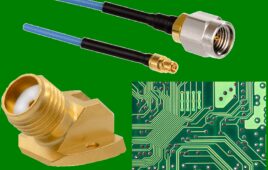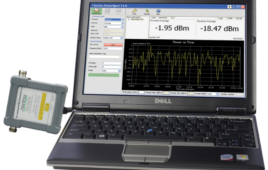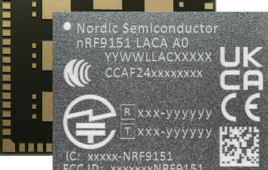Safe and Non-Polluting Portable Power System Utilizing Zinc-Air Battery Technology Exceeds 72 Hour Off-Grid Energy Needs for Mission Critical, Emergency Applications
 QuantumSphere, Inc. (QSI) today announced the availability of its MetAirTM Ranger series for on-demand back-up power in off-grid and emergency applications. While already offering the highest energy density of any commercially available primary battery at the lowest cost per kilowatt hour, QSI’s MetAirTM Ranger portable power system has received independent validation that it surpasses the industry’s 72-hour emergency preparedness benchmark. The system achieved an unprecedented 108 hours – four and a half days – of instantly accessible emergency power.
QuantumSphere, Inc. (QSI) today announced the availability of its MetAirTM Ranger series for on-demand back-up power in off-grid and emergency applications. While already offering the highest energy density of any commercially available primary battery at the lowest cost per kilowatt hour, QSI’s MetAirTM Ranger portable power system has received independent validation that it surpasses the industry’s 72-hour emergency preparedness benchmark. The system achieved an unprecedented 108 hours – four and a half days – of instantly accessible emergency power.
The MetAirTM Ranger Series portable power product is ideal for first responders, military, home, school, and business emergency preparedness. According to Tracy Lenocker, Mountain Division Chief, Office of Emergency Services, San Bernardino County Fire Department, “In our field tests, QSI’s portable zinc-air power system far exceeded our performance expectations. For mission critical applications using amateur and commercial radios we need to have at least 72 hours of battery run-time. Recent testing during actual events and simulated duty cycle tests showed that the MetAirTM Ranger battery life exceeded the 72-hour requirement by 50% or 36 hours, that’s 108 hours or four and a half days of constant, hassle-free portable energy. With a long shelf life that guarantees readiness in emergency situations, this reliable back-up power source helps alleviate worries associated with the need for constant re-charging of traditional secondary batteries.”
Kevin Maloney, CEO and president of QSI, explains, “Relying on combustible fuels, or solar- or wind-generated power in an “off-the-grid” emergency power outage or a tactical environment can be dangerous, unpredictable, and inefficient. Fuel may not be available for diesel generators or the sun may not be available for solar panels to recharge a bank of lead acid batteries when you need it most. We know the MetAir™ Ranger portable power system’s long shelf life, low cost per kilowatt hour, high power-to-weight ratio, and ease of use will address some real challenges in the $50 billion dollar portable power market. These impressive test results validate the MetAirTM Ranger’s value proposition and reliability.”
The MetAirTM Ranger, a 3.2 kilowatt hour battery system weighing less than 25 pounds, yields energy densities of 352 Wh / Kg and costs per kilowatt hour of less than $200. The MetAirTM portable power systems utilize QSI’s proprietary cathode technology that results in industry leading performance. While one MetAir™ Ranger system is about the size of a single deep cycle lead acid battery, it is roughly half the weight and has 11 times the equivalent energy per kilogram. It is also designed to easily accept replaceable power cartridges once the initial system is “air” activated and used. The MetAirTM Ranger Series is essentially a “plug and play” box of portable energy and requires no external energy sources to stay charged. The MetAirTM Ranger has an optional 150 watt 110 volt AC inverter with two outlets and a USB charging port. The MetAirTM Ranger contains no hazardous materials or combustible fuels and, unlike large format Lithium batteries, is approved for transport by the Department of Transportation as non-hazardous material.
In comparison to the commonly available battery types used today, such as Lithium-ion, Nickel metal hydride and Lead acid, QSI’s technology is based on a safe and proven zinc-air battery chemistry that is cost effective to manufacture and easy to use. Zinc-air batteries are electro-chemical batteries powered by oxidizing zinc metal powder (a non-combustible, non-toxic and abundant domestic material) with oxygen from the air to generate an electrical current. In addition, Zinc-air batteries have very high energy densities and an unprecedented shelf life of up to 10 years before initial use. Sizes range from very small button cells for hearing aids, mid-size for remote portable power applications, to very large systems used for electric vehicle propulsion.
The need for reliable, off-grid, back-up power solutions is clear and growing. According to FEMA, major disaster declarations in the U.S. have grown 400% since 1950. In 2011, statistics show that there were 3,071 reported power outages across the U.S., affecting 41.8 million people. The chief causes of these outages were commercial system overloads and natural disasters. In a recent report on U.S. electricity infrastructure, ASCE President Andrew W. Herrmann warns that power interruptions could cost companies thousands of dollars per day.
Posted by Sara Cohen, Editorial Intern
June 12, 2012




